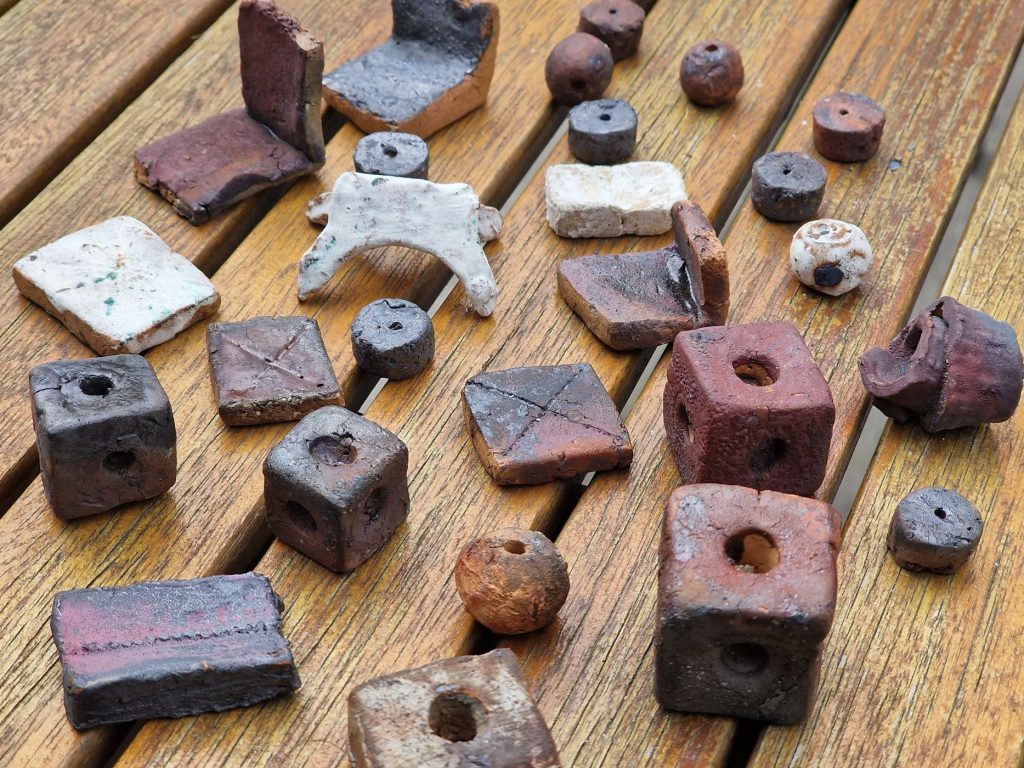
Fast Fire Glazes For The Tin Can Kiln
Link to the Tin Can kiln:
https://www.woodfireceramic.com/build-a-mini-tin-can-pottery-kiln
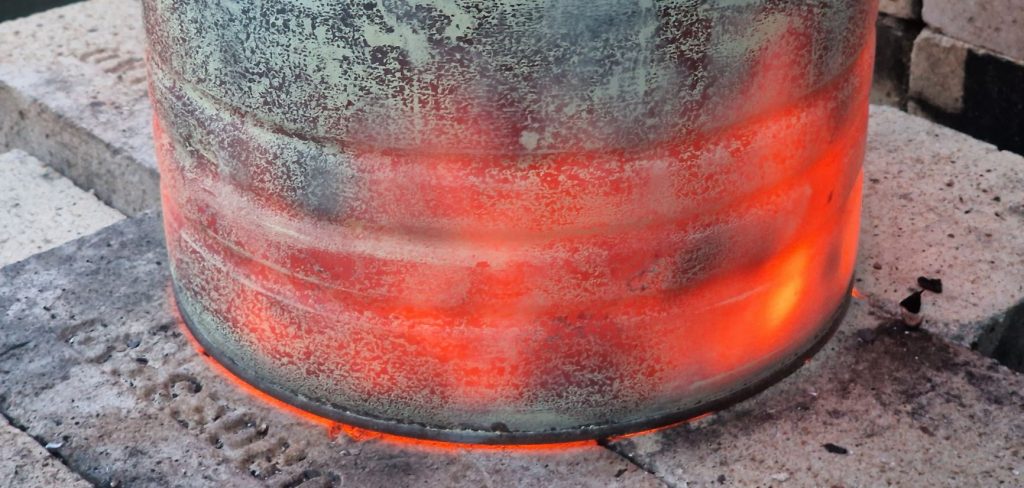
Fast Fire Glazes For the Tin Can Kiln:
OBS! These are just test-glazes for now, I will develop them further.
The Tin Can Kiln reaches 1000 – 1100 degrees Celsius. It starts from cold – to hot – to cold again in a maximum of 3 hours. Some glazes handle it, and some don’t, here I throw in some receipts to get an indication.
The short timespan gives some glazes problems with gas bobbles since they cool down quickly. In this kiln, every fire can have variations in the maximum temperature, so the glazes also need a broader temperature span.
So far Wash and thin-layer glazes work best since the clay doesn’t fuse together that easily.
Also see the extreme low-fire glazes here 550 – 600°C: glaze-fire-ceramic-in-the-campfire/
All receipts are registered in volume!
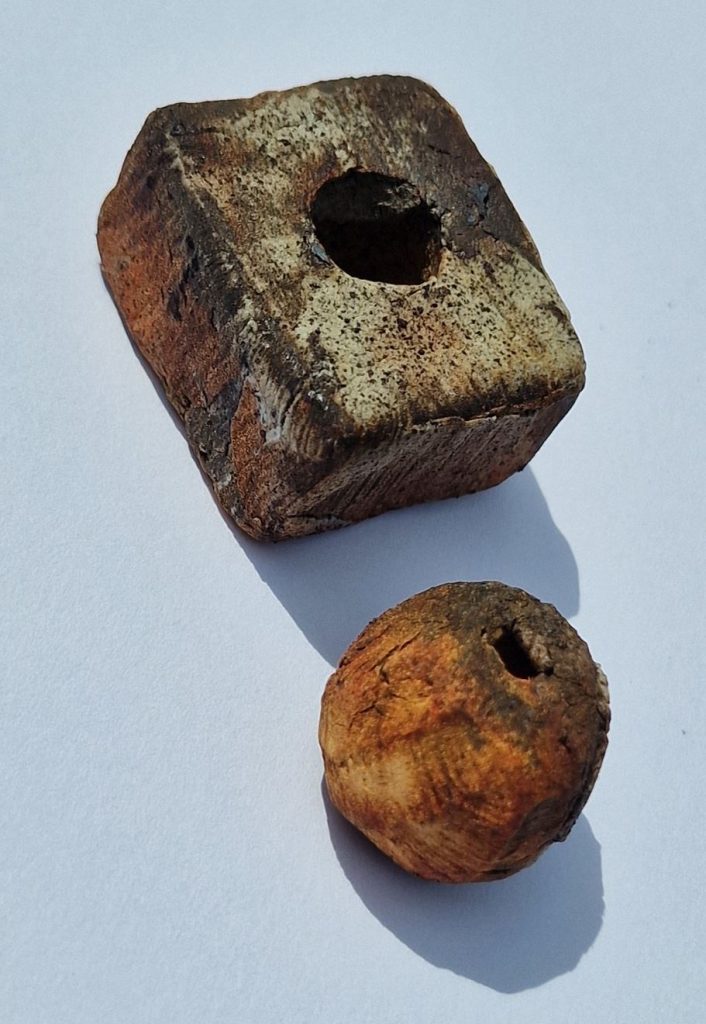
Rust, white, matte glaze
TC Glaze 1 – Interesting, would like it to be more glossy
2 part Borax-E-Frit-P2953-1
1 part Talc
1 part Feldspar
1 part Quarts
1/3 part Red iron oxide
Darker earth color glaze, var 2
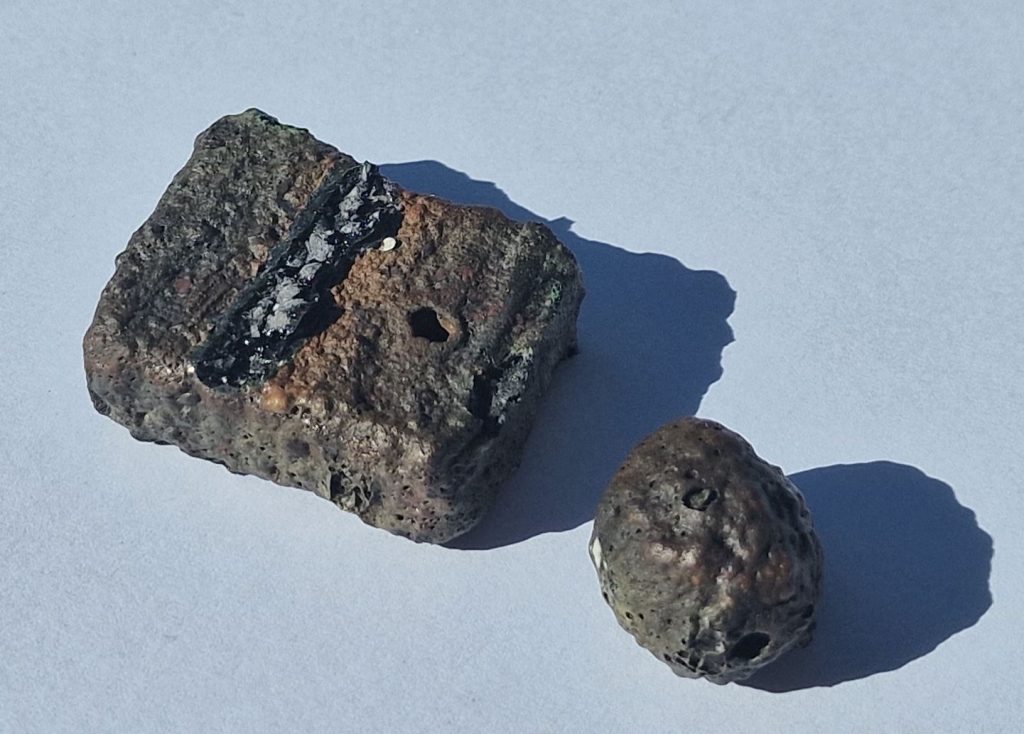
TC Glaze 1 – It seems like Gersley Borate did not have time to let out all the gas bobbles
2 part Gersley Borate
1 part Talc
1 part Feldspar
1 part Quarts
1/3 part Red iron oxide
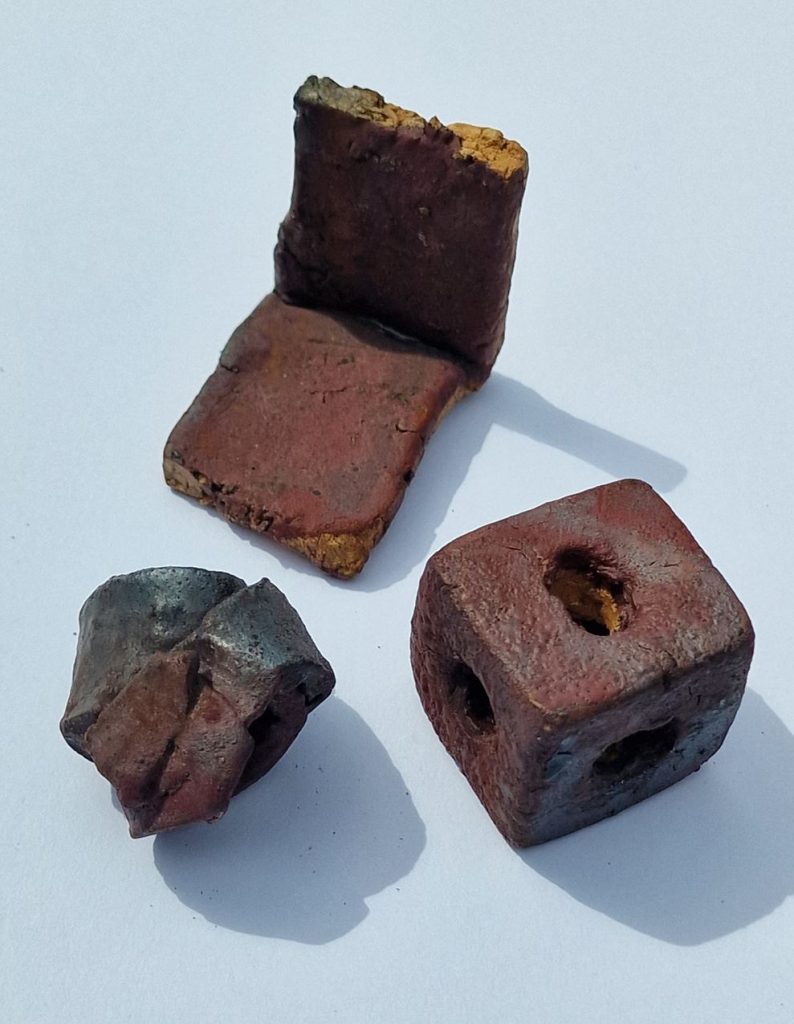
Vine red wash
TC Glaze 2
1 part Borax-E-Frit-P2953-1
1 part Red iron oxide
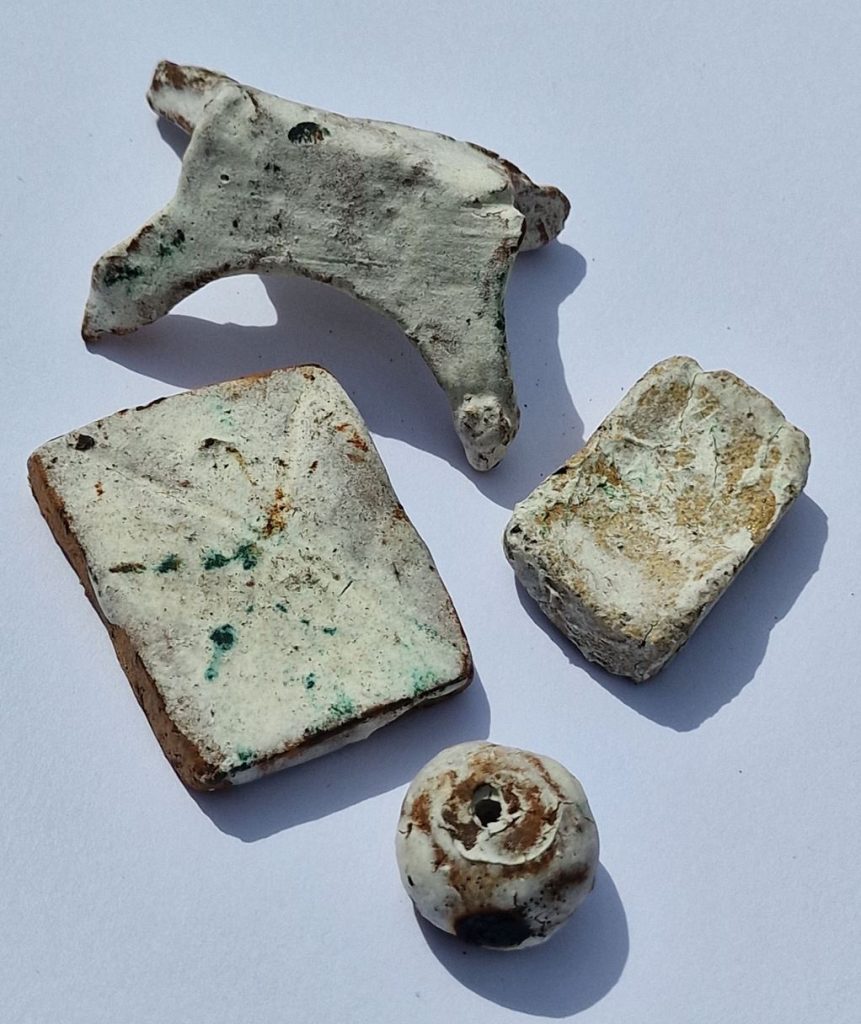
White dry glaze
TC Glaze 3 – Good covering for the dark terracotta
2 part Borax-E-Frit-P2953-1
1 part Talc
1 part Magnesium Carbonate
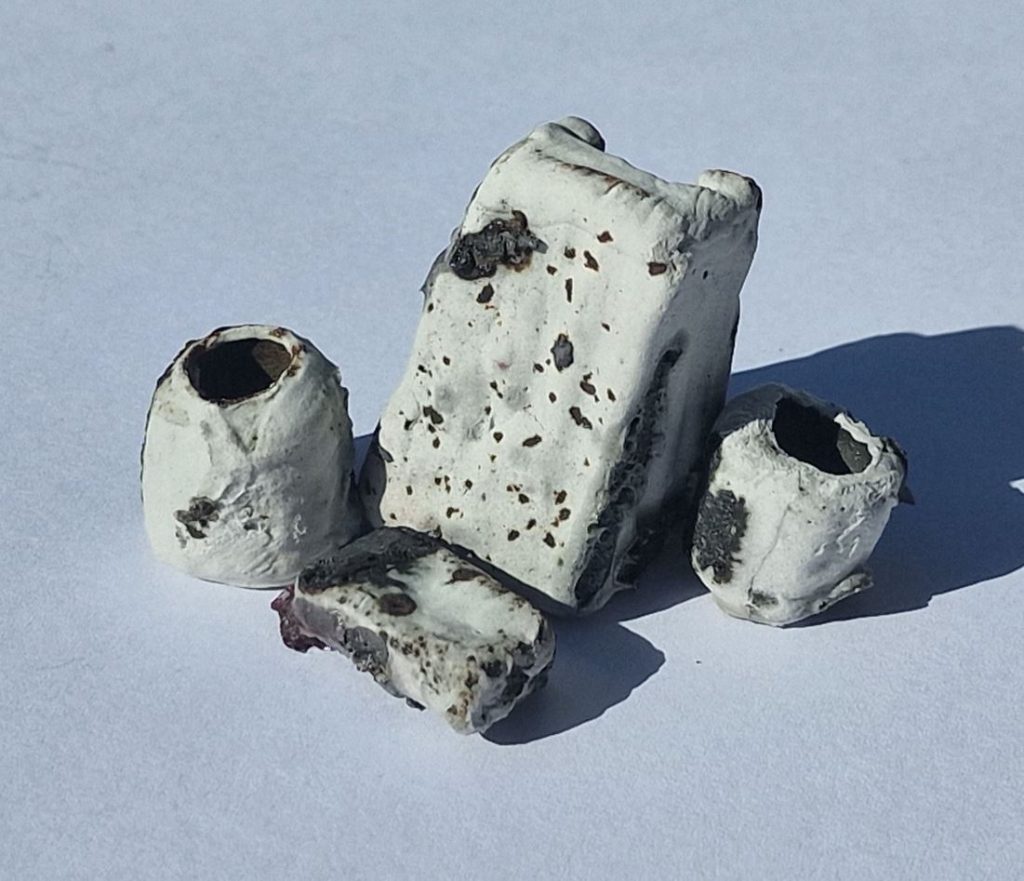
White color, good covering
TC Glaze 3 – Should be more glossy
2 part Gersley Borate
1 part Talc
1 part Magnesium Carbonate
1 part Quarts
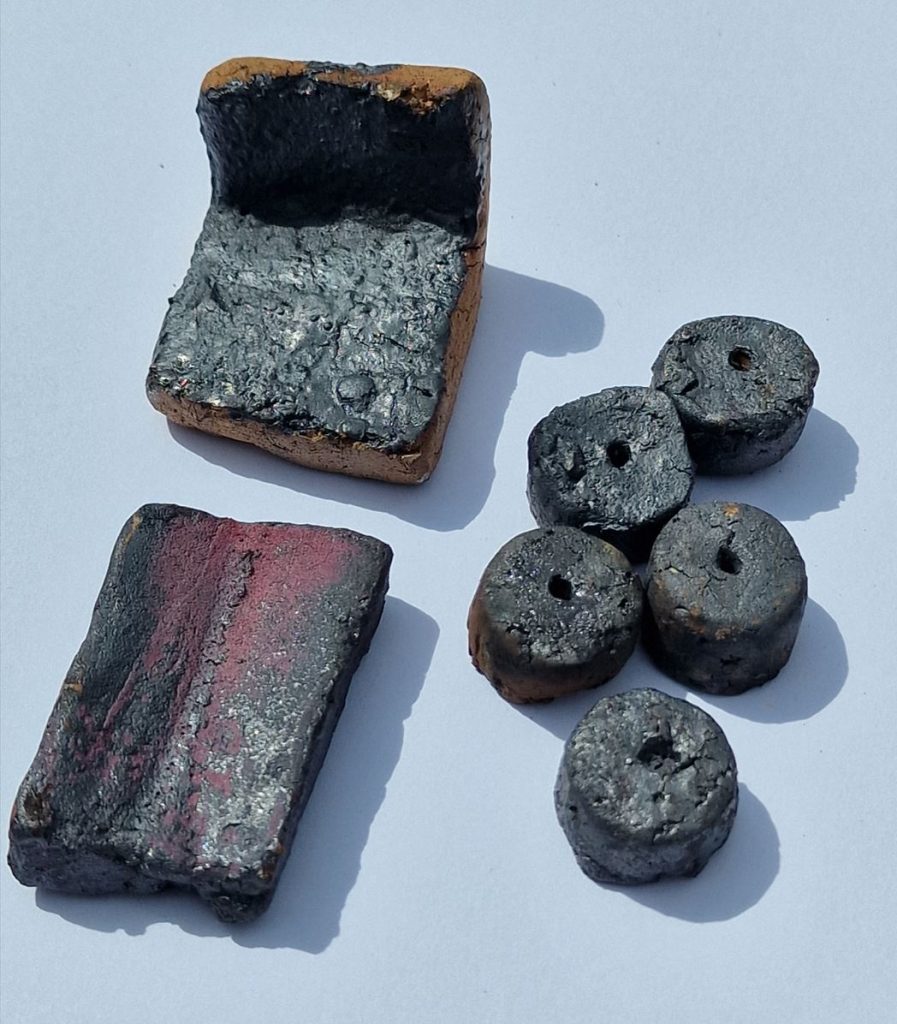
Quite a standard metallic gray/black glaze
TC Glaze 4
1 part Borax-E-Frit-P2953-1
1 part Copper carbonate
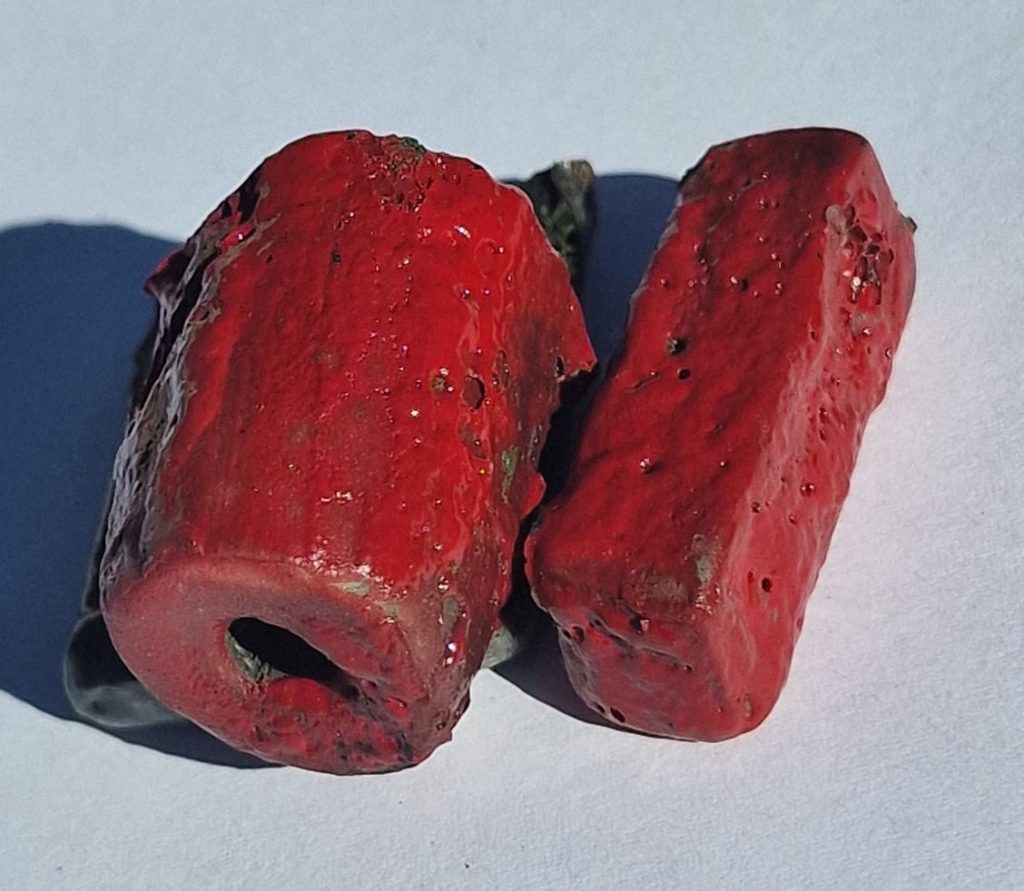
With Red Stains glaze
TC Glaze 4, var 2
2 part Borax-E-Frit-P2953-1
1 part Red Stains
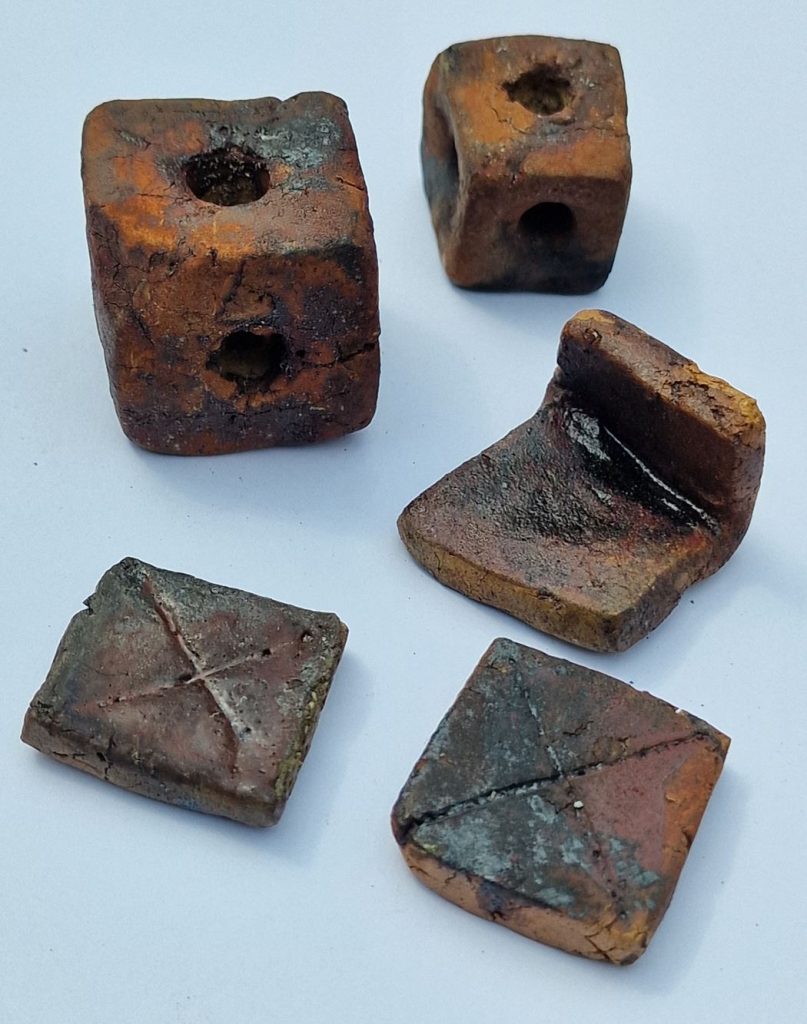
Interesting orange / black, applied thin, glaze
TC Glaze 5
1 part Borax-E-Frit-P2953-1
1 part Feldspar
1/2 part Red iron oxide
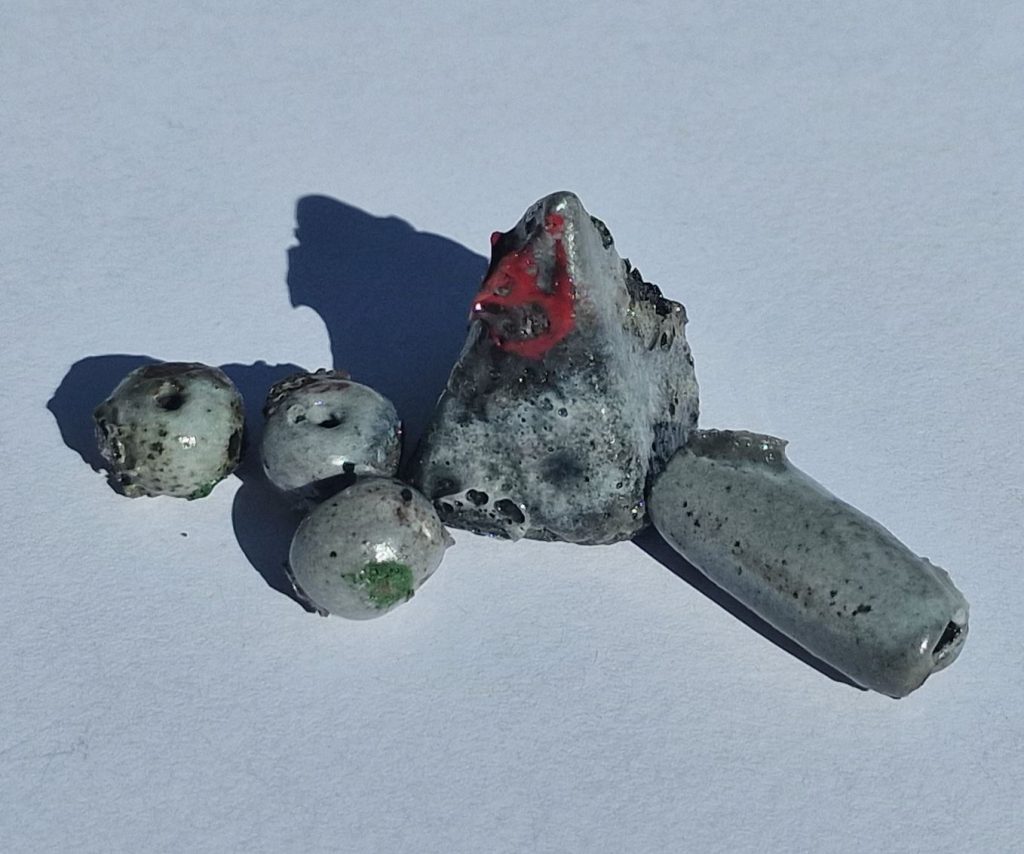
Gray / White glossy glaze
TC Glaze 6 – Nice gray-white glossy color – a variant of this:
https://woodfireceramic.com/vv-content/glazes/60-Ferro-Frit-3134_10-Chalk_10-Kaolin_30-Quarts.html
2 part Gerstley Borate
0,5 part Chalk
0,5 part Kaolin
1 part Quarts
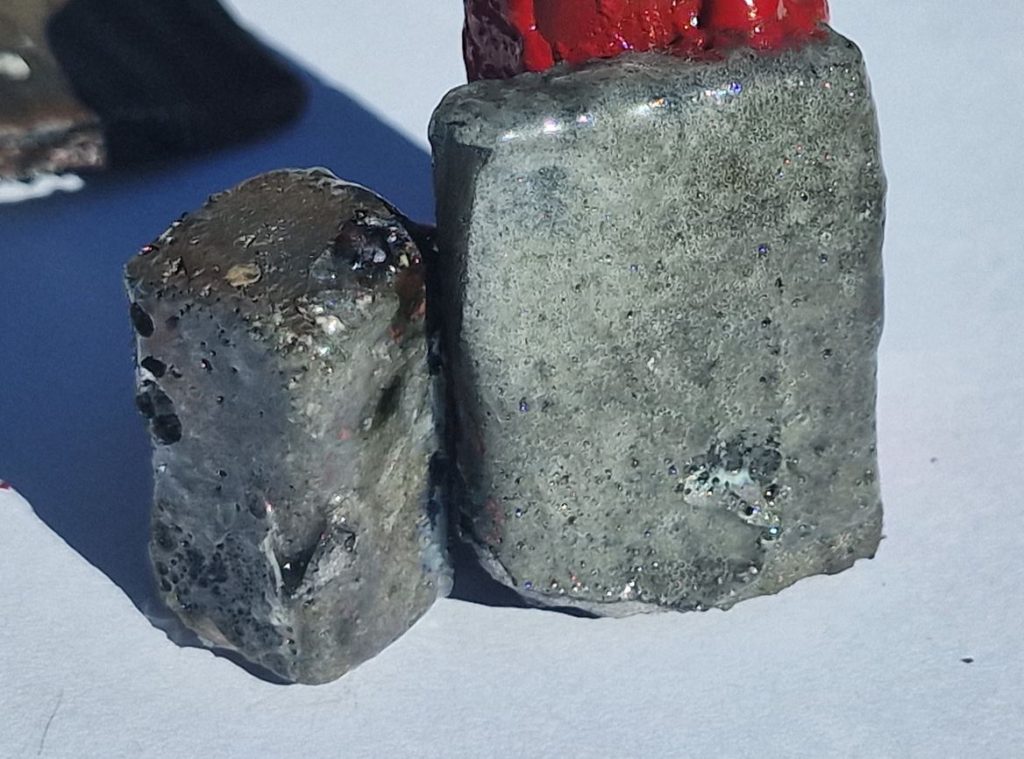
Bone white glaze
TC Glaze 7 – A variant of this:
https://woodfireceramic.com/vv-content/glazes/80-Borax-E-Frit-P2953-1_20-Talc.html
80 part Borax E Frit P2953.1
20 part Talc
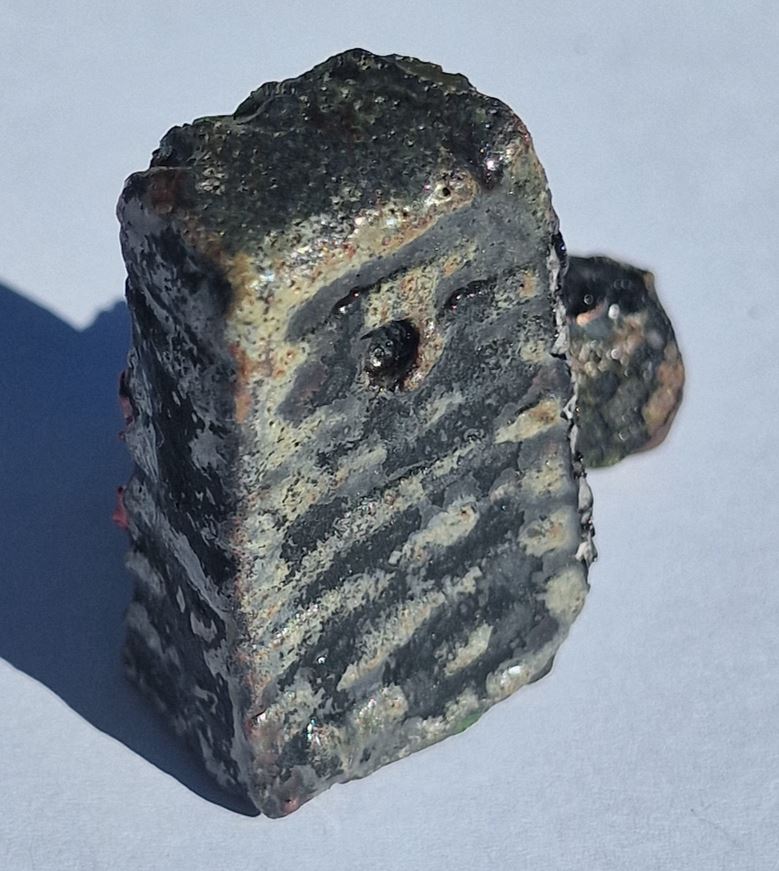
Not a complete glaze
TC Glaze 7, var 2 – No; Gerstley Borate and Talc don’t make a complete glaze
80 part Gerstley Borate
20 part Talc
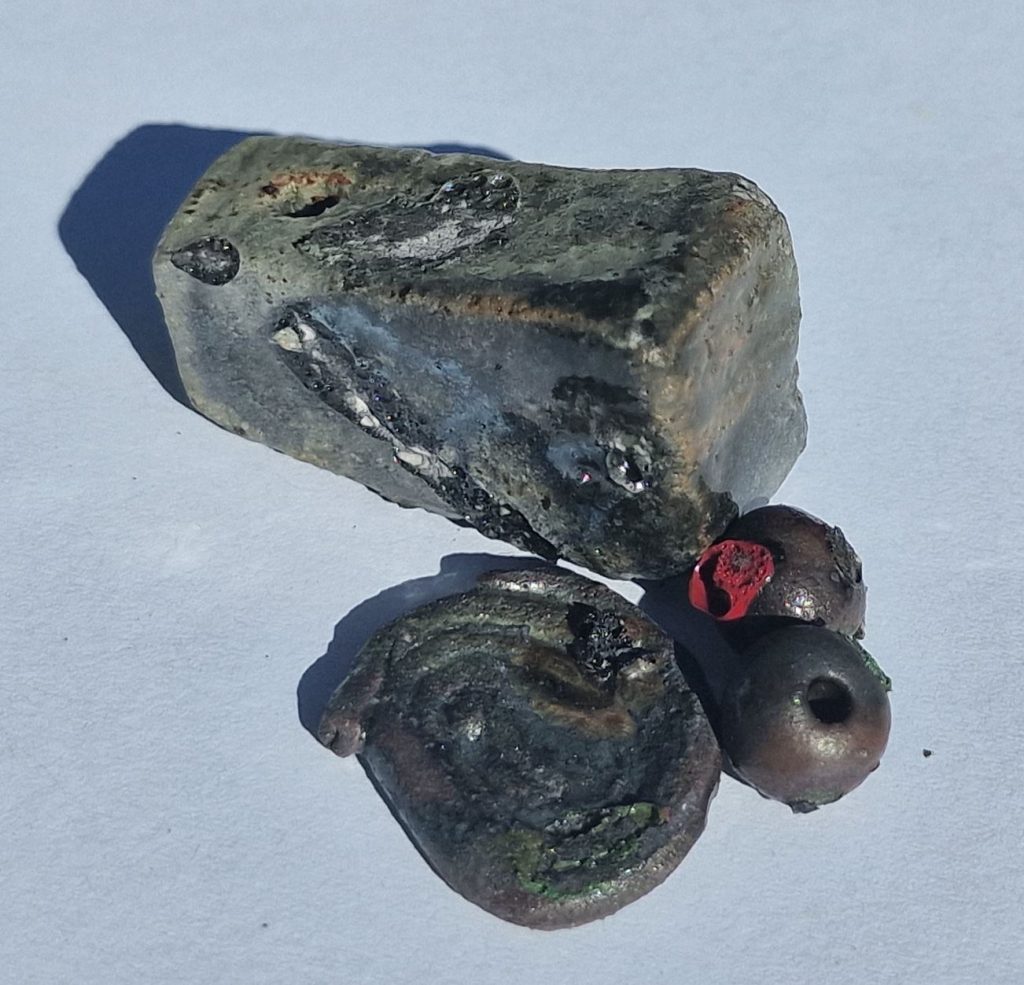
As thick a nice melted glaze
TC Glaze 8 – Difficult to analyze, seems to melt all fine but mate when too thin
3 part Sodium bicarbonate (household product)
1 part Kaolin
1 part Quarts
0,5 part Rutil
0,5 part Copper carbonate
As thick a nice melted glaze, var 2
TC Glaze 8 – All to thin layer
3 part Sodium bicarbonate (household product)
1 part Kaolin
1 part Quarts
0,2 part Red Stains
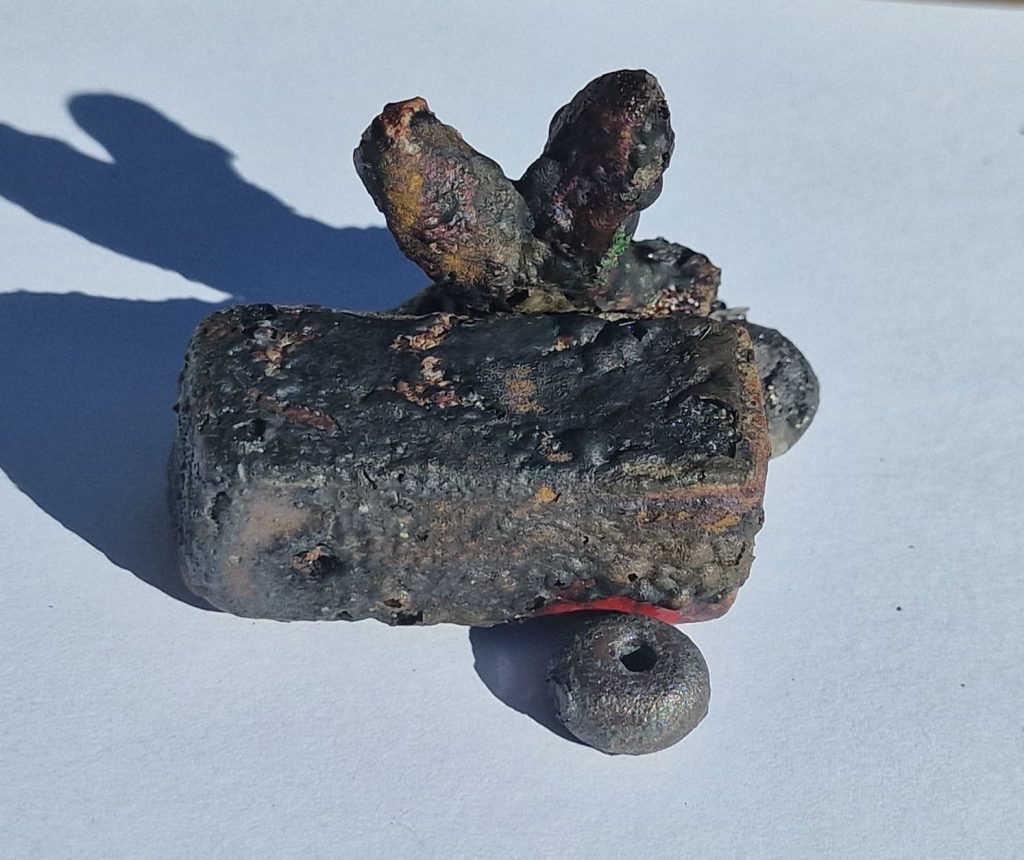
Too much flux?
TC Glaze 9 – To hot? Should have been a yellow-brown glossy but turned out black with bobbles. A variant of this:
https://woodfireceramic.com/vv-content/glazes/70-Colemanite-30-Feldspar-Soda.html
3 part Sodium Bicarbonate (household product)
1 part Feldspar Soda
1 part Kaolin
0,5 part Iron Oxide Red
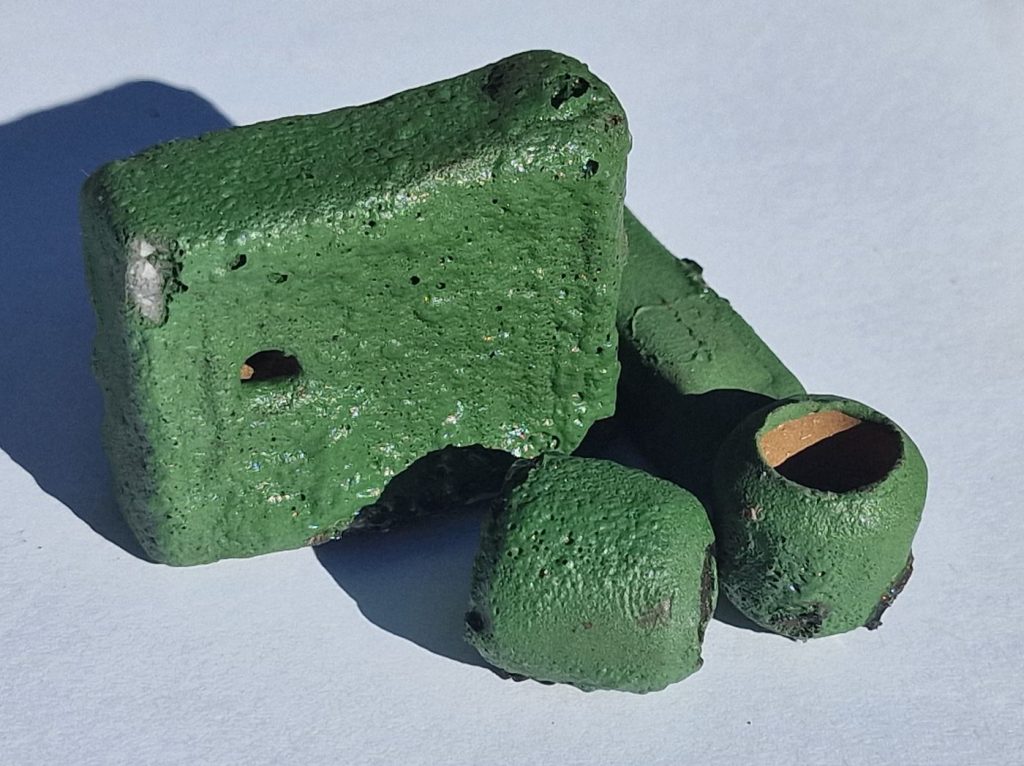
Cracled green glaze
TC Glaze 10 – A variant of this:
https://woodfireceramic.com/vv-content/glazes/40-Borax-E-Frit-P2953-1_10-Ballclay_50-
Quarts.html
2 part Gersley Borate
1 part Kaolin
2 part Quarts
1 part Iron Oxide Green
Experiments:
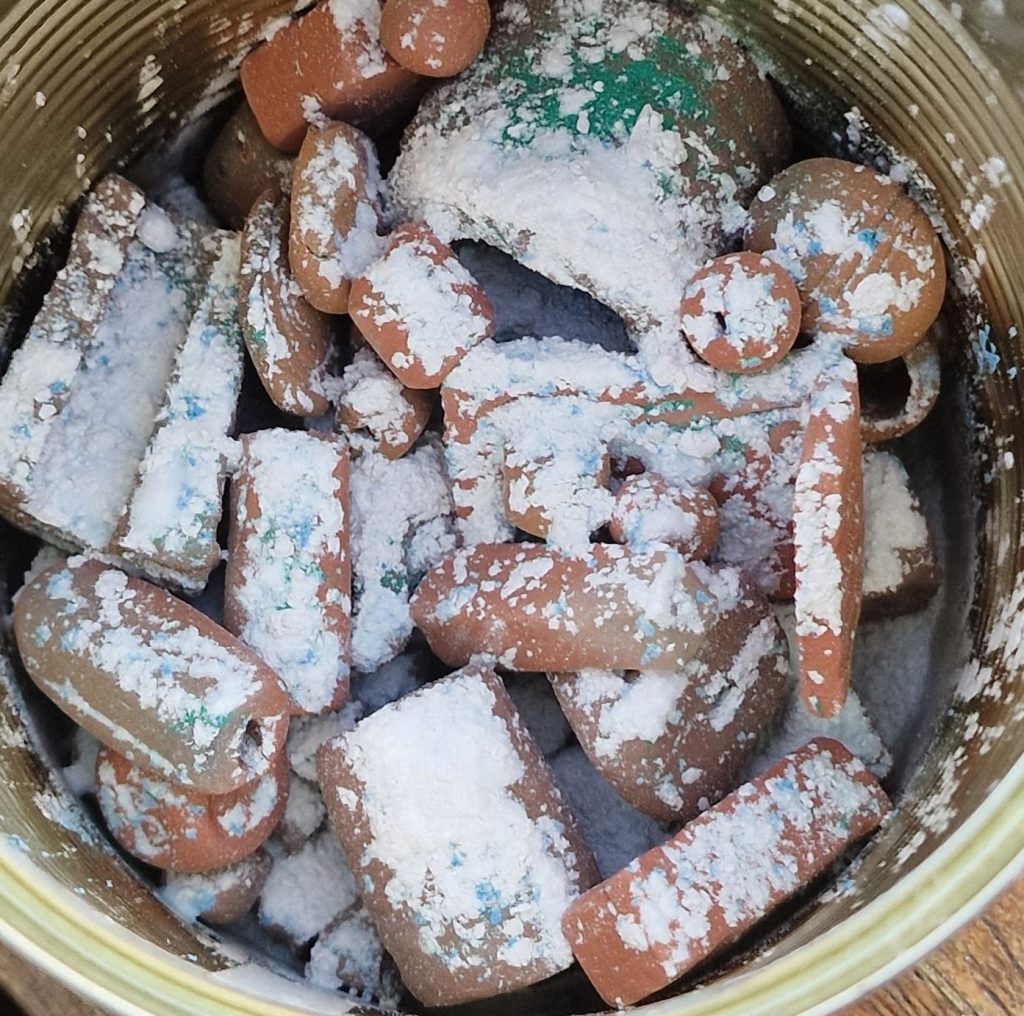
Testing to sprinkle over the ceramics (didn’t work too well):
Baking powder
Sodium bicarbonate (household product)
Eggshell powder
Quarts
Blue Stains
Copper carbonate
Testing next time:
Tin Can Kiln Glaze – Aluminium snow
50 Gerstley Borate
10 Chalk
10 Aluminium
10 Kaolin
20 Quarts
Tin Can Kiln Glaze – Wood Ash Glaze
40 Gerstley Borate
20 Feldspar Soda
30 Wood Ash
10 Kaolin
10 Iron Oxide Red
Tin Can Kiln Glaze – Green matte
40 Gerstley Borate
20 Sodium bicarbonate (household product)
30 Quarts
10 Kaolin
10 Green Iron Oxide
Read about all low-fired glazes here:
https://www.woodfireceramic.com/low-temperature-ceramic-glaze/
Fast Fire Glazes For The Tin Can Kiln. Jan 2025
Other resources about fast fire glazes for pottery: